
Human Nature and History, a monumental work in two volumes, is an attempt to analyze these relations. It is a work in meta-theory or the theory of political theory.
At the most general level, Cumming is concerned with the question of what is involved in the enterprise of political theory or political philosophy and how different conceptions of that enterprise have developed historically. More specifically, he is concerned with the format imposed on the historical development of political thought by Anglo-American liberalism, especially as represented by John Stuart Mill.
Since Cumming traces the development of political theory by reference to the relation between its subject-matter and other subject-matters, his study should be of interest to historians of thought and culture, as well as to political theorists and philosophers.
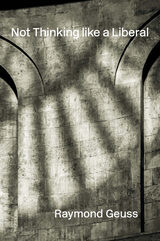
In a compelling meditation on the ideas that shape our lives, one of the world’s most provocative and creative philosophers explains how his eccentric early years influenced his lifelong critique of liberalism.
Liberalism is so amorphous and pervasive that for most people in the West it is background noise, the natural state of affairs. But there are nooks and crannies in every society where the prevailing winds don’t blow. Raymond Geuss grew up some distance from the cultural mainstream and recounts here the unusual perspective he absorbed: one in which liberal capitalism was synonymous with moral emptiness and political complacency.
Not Thinking like a Liberal is a concise tour of diverse intellectual currents—from the Counter-Reformation and communism to pragmatism and critical theory—that shaped Geuss’s skeptical stance toward liberalism. The bright young son of a deeply Catholic steelworker, Geuss was admitted in 1959 to an unusual boarding school on the outskirts of Philadelphia. Outside was Eisenhower’s America. Inside Geuss was schooled by Hungarian priests who tried to immunize students against the twin dangers of oppressive communism and vapid liberal capitalism. From there Geuss went on to university in New York in the early days of the Vietnam War and to West Germany, where critical theory was experiencing a major revival.
This is not a repeatable journey. In tracing it, Geuss reminds us of the futility of abstracting lessons from context and of seeking a universal view from nowhere. At the same time, he examines the rise and fall of major political theories of the past sixty years. An incisive thinker attuned to both the history and the future of ideas, Geuss looks beyond the horrors of authoritarianism and the shallow freedom of liberalism to glimpse a world of genuinely new possibilities.
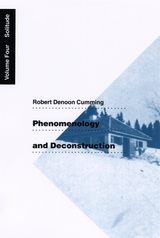
After the war Heidegger disavowed Sartre, a move related to Heidegger's renunciation of his association with the phenomenological movement at large, and one that illustrates the dynamics of the history Cumming himself has completed. Serving as convincing punctuation for this remarkable series, this book demonstrates the importance of the history of philosophy in coming to grips with the proclaimed end of philosophy.
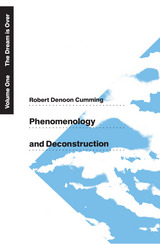
In this analysis Cumming deals with how a philosophy can be vulgarized (as Heidegger's was by Nazism but in Heidegger's own view by Sartre), with problems of periodization, with how the history of philosophy can be disinguished as a philosophical discipline from intellectual history. Cumming also elaborates an analogy between a philosophical method and style.
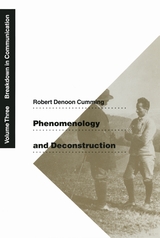
history of philosophy demonstrates how frequently one philosopher
misunderstands another. The most notorious such breakdown in
communication in twentieth-century philosophy was between Husserl and
Heidegger. In the third volume of his history of the phenomenological
movement, Robert Denoon Cumming argues that their differences involve
differences in method; whereas Husserl follows a "method of
clarification," with which he eliminates ambiguities by relying on an
intentional analysis that isolates its objects, Heidegger rejects the
criterion of "clarity" and embraces ambiguities as exhibiting
overlapping relations.
Cumming also explores the differences between how
deconstruction—Heidegger's procedure for dealing with other
philosophers—is carried out when Heidegger interprets Husserl versus
when Derrida interprets Husserl. The comparison enables Cumming to
show how deconstruction is associated with Heidegger's arrival at the
end of philosophy, paving the way for the deconstructionist movement.
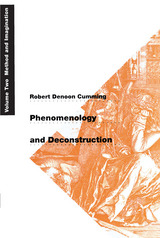
Cumming also shows that conversion is not merely a personal predisposition of Sartre's—further manifest in his later conversions to Heidegger and to a version of Marxism. Conversion is also philosophical preoccupation, illustrated by the "conversion to the imaginary" whereby Sartre explains how he himself, as well as Genet and Flaubert, became writers. Finally, Cumming details how Husserl's phenomenological method contributed both to the shaping of Sartre's style as a literary writer and to his theory of style.
READERS
Browse our collection.
PUBLISHERS
See BiblioVault's publisher services.
STUDENT SERVICES
Files for college accessibility offices.
UChicago Accessibility Resources
home | accessibility | search | about | contact us
BiblioVault ® 2001 - 2024
The University of Chicago Press









